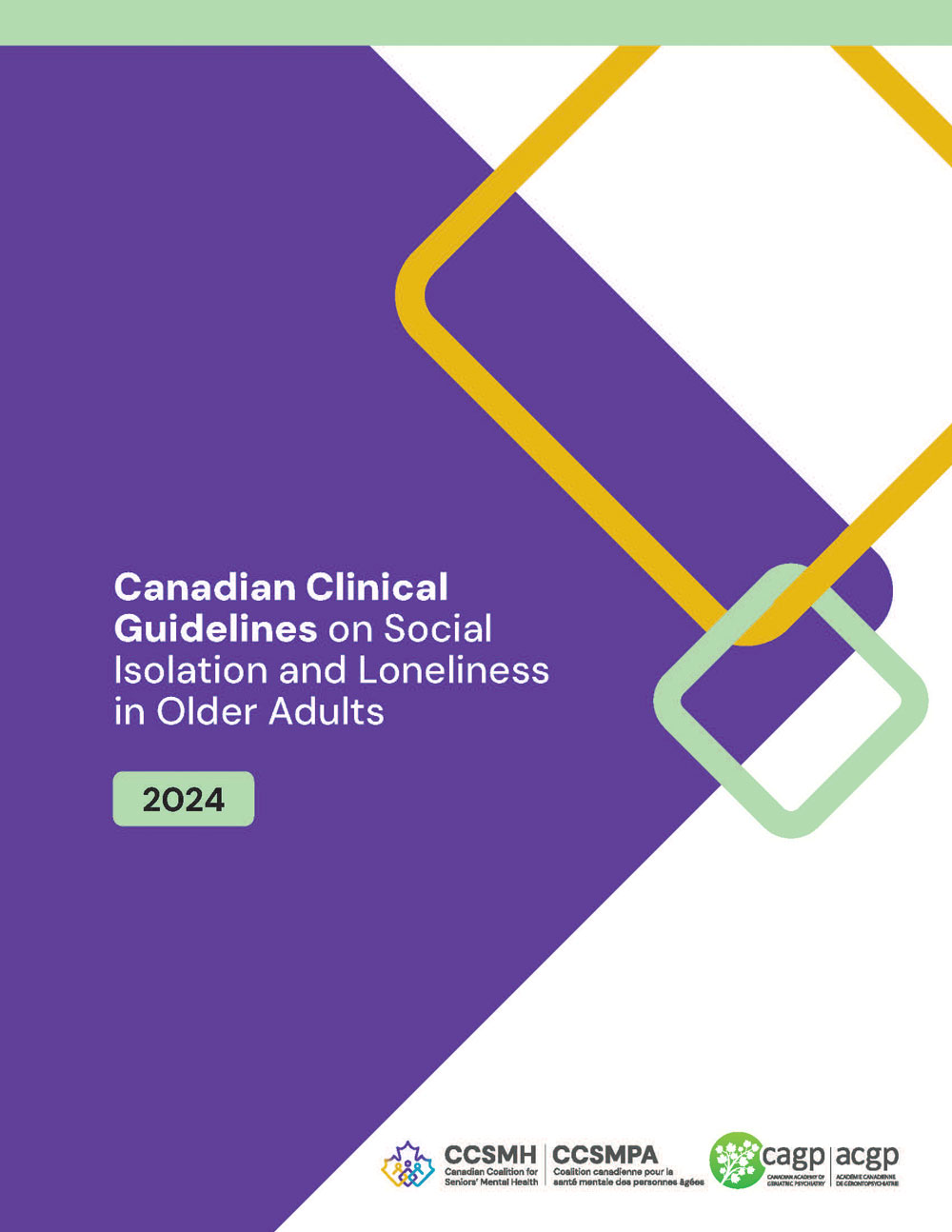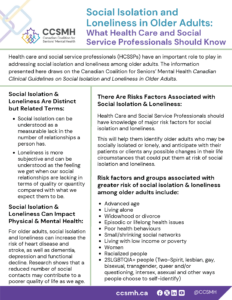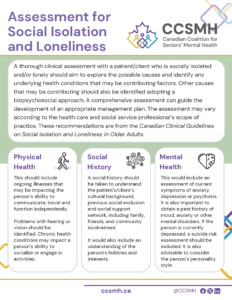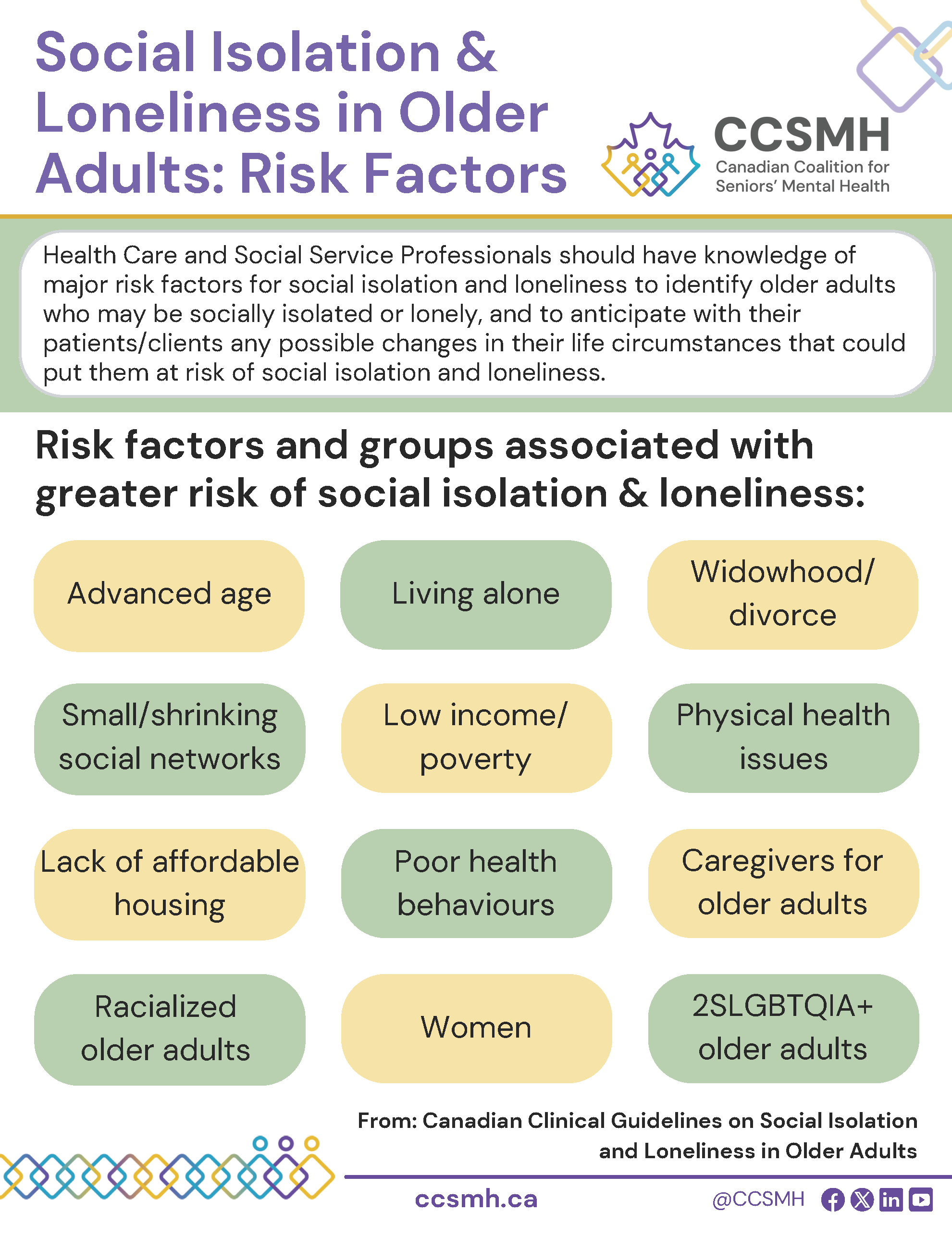Social Isolation and Loneliness – Health Care Professionals
Clinical Guidelines
Discover the first guidelines on social isolation and loneliness in older adults.
For Older Adults and Care Partners
Explore ways to support mental health and well-being for yourself and loved ones.
Key Findings
Discover our research.
Health and social service providers have an important role to play in addressing social isolation and loneliness among older adults.
It's important for health and social service professionals to be aware of risk factors and transitional life events, such as retirement, the death of family or friends, or changes in living arrangements which may contribute to the risk of social isolation and loneliness of their patient or client. Other contributing factors can include poverty, lack of transportation, gender and sexual identity, sexual orientation and ethnicity.
Key Facts:
Discover Our Resources

Read the Guidelines
Canadian Clinical Guidelines on Social Isolation and Loneliness
The purpose of these guidelines is to empower and support clinicians in their work with older adults who may be at risk of or already experiencing the health impacts of social isolation and loneliness.

Discover Our Clinician's Pocket Card
The Social Isolation and Loneliness In Older Adults clinician pocket card provides an overview of our recommendations for assessment and treatment.

Read the Results of Our National Survey
We are still learning the story of social isolation and loneliness for older adults in Canada. That's why we completed our national survey of older adults and HCSSPs. Check out our qualitative report to learn all the details and start the conversation today!

Discover Key Takeaways From the Guidelines
Want to know more about key recommendations from the clinical guidelines? Print this infosheet for an at-a-glance reminder in your office and share it with your colleagues.

Learn More About the Assessment of Social Isolation and Loneliness in Older Adults
A comprehensive assessment can guide the development of an appropriate management plan. Drawn from the guidelines, this resource is a helpful at-a-glance information sheet about the process of evaluating, assessing and treating social isolation and loneliness.

Learn More About the Risk Factors
Health care and social service professionals should have knowledge of major risk factors for social isolation and loneliness to identify older adults who may be socially isolated or lonely. Drawn from the guidelines, this infographic is a helpful at-a-glance information sheet about the risk factors and groups associated with a greater risk of social isolation and loneliness.
Read our article on social isolation and loneliness
Read the Op-Ed written by Dr. David Conn, CCSMH Co-chair and Claire Checkland, CCSMH Executive Director.
